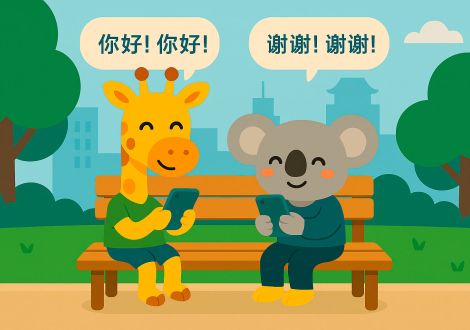The card game Dou Dizhu 斗地主 [dòu dìzhǔ] is one of the most popular pastimes in China. Its name literally translates as “beat the landlord” and, much like Mahjong, it plays a central role in the social life of millions of people across the country.
The origin and history of Dou Dizhu
Although Mahjong is much older, Dou Dizhu also has several decades of history. It originated in Hubei province in the mid-20th century and quickly spread throughout China thanks to its simple rules and fast-paced gameplay.
The theme of “peasants versus landlord” reflects, to some extent, the social reality of the time when the game first appeared. Today, however, the name is more of a cultural reference than a political message.
How to play Dou Dizhu
The game is played with a standard 54-card deck (52 plus two jokers). It is usually played by three players:
- One takes the role of the 地主 (dizhǔ, the landlord).
- The other two form a temporary team as 农民 (nóngmín, peasants) to defeat the landlord.
At the beginning, each player is dealt 17 cards, and three extra cards are given to the landlord after an initial bidding round.
The gameplay proceeds in turns: each player must try to play a combination of cards that beats the previous play. The possible combinations are quite varied: from single cards to long straights, triples, double pairs, or even special plays like the “bomb” (four of a kind) or both jokers together.
The landlord’s goal is to be the first to play all their cards, while the peasants cooperate to prevent that from happening.
A game of strategy and cooperation
Although easy to learn, Dou Dizhu has a surprising amount of strategic depth. Knowing when to take risks, how to coordinate with your partner, and when to play your strongest combinations can make the difference between winning and losing.
This mix of competition and cooperation is one of the main reasons for its massive popularity.
Dou Dizhu today
Nowadays, Dou Dizhu is played at home, during family gatherings, and above all online. There are dozens of apps and platforms where millions of people play every day, keeping the game alive and relevant in the smartphone era.
Like Mahjong, Dou Dizhu is not just a game: it’s a way of socializing, spending time with family, and keeping Chinese traditions alive.
Language and culture connection
One interesting aspect of Dou Dizhu is that it introduces everyday Chinese vocabulary: words like 地主 (landlord), 农民 (peasant), and expressions from the game itself that have entered common slang.
If you’re curious about Chinese culture and want to take it a step further, you can start learning Mandarin with our app Chinesimple (Khanji School). You’ll find study resources for every HSK level—so you can enjoy games like Dou Dizhu while also understanding the language and expressions behind them!








